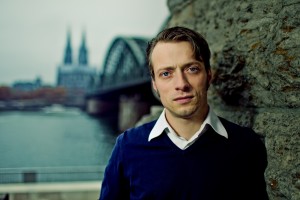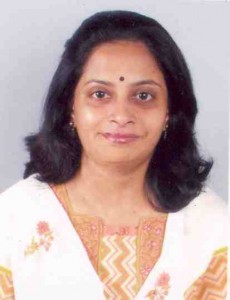Michael Stang and T V Padma to be “Journalists in Residence” at HITS
The Heidelberg Institute for Theoretical Studies gives science journalists the opportunity to deepen their knowledge of computer-based, data-driven science with a longer stay at the institute. For the second time, the program was announced internationally. Candidates from 23 countries applied. The jury chose the science journalists Michael Stang (Germany) for 2016 and TV Padma (India) for 2017.
German science journalist Michael Stang will be the fifth “Journalist in Residence” at the Heidelberg Institute for Theoretical Studies (HITS). For the second time, the program was announced internationally; 40 candidates from 23 countries had applied. A jury consisting of science journalists and scientists from universities, Max Planck Institutes and HITS, selected Michael Stang to be the “HITS Journalist in Residence 2016”. He will join the institute in February 2016.
Stang studied Physical Anthropology, Social Anthropology and Palaeontology/Geology at Mainz University. After this Master´s Degree, he was awarded a scholarship for science journalism by the Bertelsmann Foundation, including stages at print and radio outlets. Since 2005, he has been working as a freelance reporter in Cologne, Germany, working for radio stations in Germany (Deutschlandradio, WDR, BR, SWR), Austria (ORF) and Switzerland (SRF) as well as for newspapers and magazines (e.g. Frankfurter Allgemeine Sonntagszeitung). According to his statement “science is not a national business”, he has been reporting from more than 30 countries. Moreover, he is highly committed to cross-border journalism. He is a member of “journalists.network”, a research network for young journalists who want to learn how to cover stories from abroad. He also works voluntarily as an ambassador for “Hostwriter”, a global collaboration network for journalists.
Michael Stang intends to use his stay to interact with the researchers at HITS and to learn more about data-driven science.
The jury also chose T V Padma as “Journalist in Residence” for 2017. T V Padma is an India-based science journalist currently writing for international and national outlets like Nature, Nature India, Physics World, BioWorld, New Scientist and India Climate Dialogue. Before, she had been the founding South Asia head of SciDev.Net, a not-for-profit, free-access international science website focusing on science policies and research in developing countries, project editor at Panos Institute South Asia and science correspondent of the Press Trust of India (PTI)
Since 2012, the “Journalist in Residence” program offers experienced journalists with a focus on science journalism the opportunity to spend a three-month to six-month paid stay at HITS. In this time, journalists can interact with the research groups, implement their own projects and participate in internal colloquia and seminars of HITS researchers.
The renowned German science journalist Volker Stollorz was the first “Journalist in Residence” at HITS in 2012. This year, Stollorz became chief editor of the new German Science Media Center that has been founded in Cologne. In 2013, the German freelance TV journalist Pia Grzesiak made intensive use of her stay to look behind the “mountains of data” at HITS. In 2014, the Barcelona-based, award-winning science journalist Michele Catanzaro used his time at the institute to gain a deeper insight into the German scientific landscape and make contacts with many German journalists. And in 2015, the U.S. science writer Larry Krumenaker stayed at HITS, doing research for e-Book projects in science education.
The HITS is a private, non-profit basic research institute. It was founded by the Klaus Tschira Foundation) in 2010. At HITS, currently around 120 scientists from 20 countries work in twelve research groups in areas where large amounts of data are produced and processed – from Molecular Biology to Astrophysics. One of the institute’s aims is to make the public more aware of the importance of computer-based, data-driven science, especially in natural sciences.
Press Contact:
Dr. Peter Saueressig
Public Relations
Heidelberg Institute for Theoretical Studies (HITS)
Phone: +49-6221-533-245
peter.saueressig@h-its.org
http://www.h-its.org/
Twitter: @HITStudies
About HITS
HITS, the Heidelberg Institute for Theoretical Studies, was established in 2010 by physicist and SAP co-founder Klaus Tschira (1940-2015) and the Klaus Tschira Foundation as a private, non-profit research institute. HITS conducts basic research in the natural, mathematical, and computer sciences. Major research directions include complex simulations across scales, making sense of data, and enabling science via computational research. Application areas range from molecular biology to astrophysics. An essential characteristic of the Institute is interdisciplinarity, implemented in numerous cross-group and cross-disciplinary projects. The base funding of HITS is provided by the Klaus Tschira Foundation.

